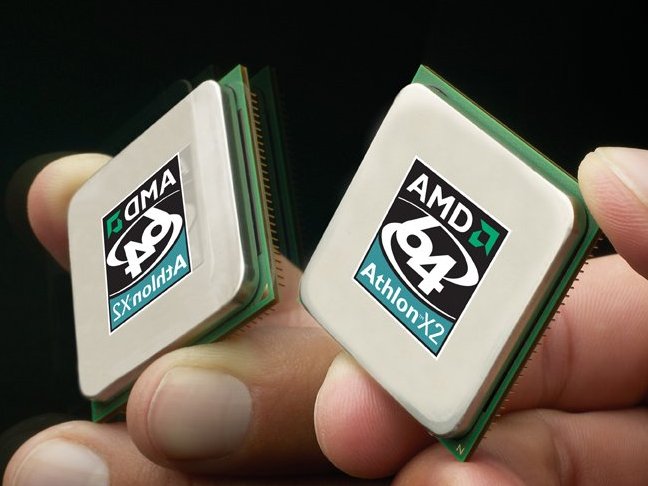AMD slashes prices, kills single-core chips
Flagship Athlon 64 X2 chip falls below the £100 mark

Sign up for breaking news, reviews, opinion, top tech deals, and more.
You are now subscribed
Your newsletter sign-up was successful
AMD has taken the knife to its desktop processor pricing once again. Incredibly, the bulk purchase price for the flagship of the standard Athlon 64 X2 range has now fallen below £100.
Effective this week, the Athlon 64 X2 6000 chip is now priced at just $178. That's a drop of around 30 per cent from AMD's previous list price and translates into just £88 in UK terms. At launch earlier this year, the 6000 was sold for £255 excluding VAT.
AMD vs. Intel
Already, a number of online retailers in the UK are selling the Athlon 64 X2 6000 for just over £100 including VAT.
The remainder of the Athlon 64 X2 family received similar price cuts. The 5200 now clocks in at $136 (down from $178), the 4400 is slashed from $121 to $94 and the 4200 is down by $31 to just $73.
The cuts are the latest salvo in a vicious price war between AMD and arch rival Intel . Unable to compete with Intel's powerful Core 2 Duo processor in terms of raw performance, AMD has been forced to reposition its Athlon 64 X2 chips accordingly.
The price war is thought to be a major contributor to the £611 million loss AMD announced for the first quarter of 2007.
Farewell single-core
Meanwhile...Along with swinging price cuts, AMD has announced that its single-core Athlon and Sempron processors will be phased out in developed markets. Some low cost single-core Athlon chips will remain on sale in high growth markets including Brazil, China and Russia.
Sign up for breaking news, reviews, opinion, top tech deals, and more.
With prices for its existing processor range now at rock-bottom, AMD desperately needs to roll out its long awaited new quad-core chip. Known as Barcelona , AMD has announced the crucial new CPU will begin shipping in server and workstation trim next month.
An official launch date for Agena, the desktop variant of AMD's new quad-core architecture, has not been revealed. However, it's unlikely to appear before the very end of 2007 and could be delayed until well into 2008.
Tech.co.uk was the former name of TechRadar.com. Its staff were at the forefront of the digital publishing revolution, and spearheaded the move to bring consumer technology journalism to its natural home – online. Many of the current TechRadar staff started life a Tech.co.uk staff writer, covering everything from the emerging smartphone market to the evolving market of personal computers. Think of it as the building blocks of the TechRadar you love today.